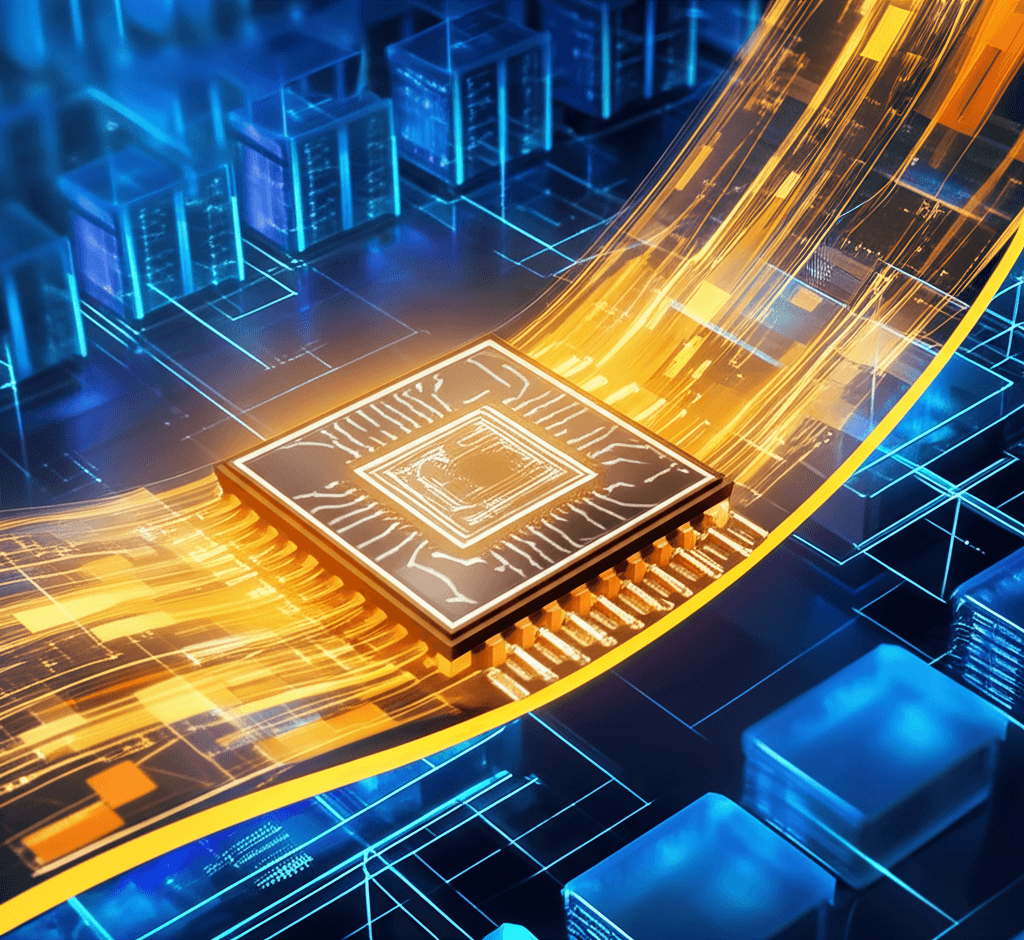Nvidia's AI Chip Dominance Propels It to World's Most Valuable Company
Nvidia's GPU monopoly fuels its unprecedented valuation, cementing its role as the AI revolution's primary "arms dealer."
June 26, 2025

In a stunning display of the momentum fueling the artificial intelligence revolution, chipmaker Nvidia has reclaimed its title as the world's most valuable company. A surge in its stock price recently pushed its market capitalization to an astonishing $3.76 trillion, surpassing tech giant Microsoft, which stood at $3.66 trillion.[1][2][3] This remarkable ascent underscores investors' immense confidence in Nvidia's central role in the burgeoning AI economy, cementing its position as the primary arms dealer in a technological gold rush. The company's stock reached a new high of over $154 per share, a rally partly fueled by a bullish analyst note from Loop Capital, which raised its price target for the company, citing a "Golden Wave" of AI adoption.[2][4] This milestone is not just a testament to Nvidia's current dominance but a powerful indicator of the transformative power of artificial intelligence and its profound implications for the global technology landscape.
The foundation of Nvidia’s spectacular rise is its near-monopolistic grip on the market for the specialized processors, known as graphics processing units (GPUs), that are essential for building and training advanced AI models.[5] The company is estimated to control between 70% and 95% of the market for AI chips used in data centers.[6][7][3] This dominance is the result of a long-term strategic vision, initiated decades ago, to invest heavily in developing GPUs for applications beyond their original purpose in computer gaming.[5] This foresight positioned Nvidia perfectly to capitalize on the explosive growth of generative AI, kicked off by the launch of models like ChatGPT.[8] Tech titans such as Microsoft, Meta, Google, and Amazon are all major customers, spending aggressively to build out the massive AI infrastructure required to power their own AI ambitions, with Nvidia's hardware forming the critical backbone.[5][3][9] The insatiable demand for its processors has led to astounding financial growth, with data center revenue reaching record-breaking figures quarter after quarter.[8][3]
Fueling the relentless investor optimism is the immense demand for Nvidia's next-generation products, particularly its Blackwell platform.[8][10] Described by the company's CEO as facing "insane" demand, the Blackwell chips promise significant leaps in performance and efficiency for training and running complex AI models.[10][11] This new architecture is already seeing a rapid ramp-up in production, with the company expecting to ship billions of dollars' worth of the new chips in the coming quarters.[12][10] The demand for Blackwell is so high that it is expected to exceed supply for several quarters.[12] This sustained demand is bolstered by the company's comprehensive CUDA software ecosystem, which creates a significant barrier to entry for competitors by locking developers into Nvidia's platform.[7][3] While rivals like AMD and Intel are working to develop competing AI chips, they currently hold a much smaller share of the market, reinforcing Nvidia's entrenched position.[8][13]
The implications of Nvidia's market leadership extend far beyond its own balance sheet, signaling a major shift in the technological and economic hierarchy. The company's rapid valuation surge, which saw it leap from a $1 trillion market cap to over $3 trillion in just over a year, is emblematic of the speed and scale of the current AI-driven industrial revolution.[8][14] This growth has propelled the entire semiconductor sector and has been a primary driver of record highs in broader market indexes like the S&P 500.[5] The AI market itself is projected to experience explosive growth, with some estimates suggesting it could become a $1.3 trillion industry by 2032.[8] However, questions remain about the sustainability of this hype cycle and whether the promised productivity gains from AI will fully materialize to justify these massive valuations.[14] Furthermore, the concentration of such critical technology in a single company raises questions for the industry and has attracted the attention of antitrust regulators.[5]
In conclusion, Nvidia's re-emergence as the world's most valuable company is a clear marker of the artificial intelligence era. Its ascent has been driven by a strategic monopoly on the essential hardware powering the AI boom, resulting in unprecedented financial performance and investor confidence. The incredible demand for its next-generation Blackwell chips suggests its momentum is far from peaking, solidifying its pivotal role in the ongoing technological transformation. As the world grapples with the immense potential and complexities of artificial intelligence, Nvidia stands firmly at its epicenter, its market value a reflection of the revolutionary power of the technology it enables. The sustained growth of the company and the broader AI industry will depend on continued innovation, expanding adoption, and navigating the evolving competitive and regulatory landscapes.